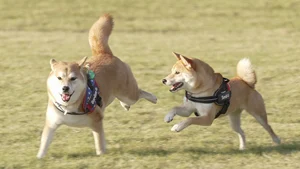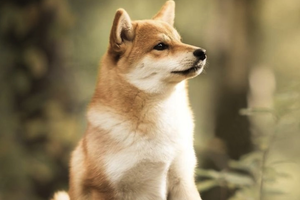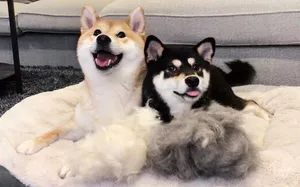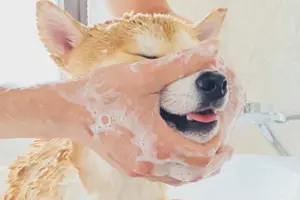
Shiba Inus are a popular breed of dog known for their unique personality traits and striking appearance. However, before getting a Shiba Inu, it’s important to carefully consider various factors to ensure that they are the right pet for you and your household. In this article, we will discuss some of the key factors to consider before getting a Shiba Inu, including breed characteristics, costs of ownership, living situation, training and socialization, health concerns, and breeder vs. rescue options. By the end of this article, you’ll have a better understanding of whether a Shiba Inu is the right pet for you.
Breed Characteristics
Shiba Inus are known for their unique personality traits that set them apart from other dog breeds. They are highly independent and can be stubborn at times, which can make training a challenge. They are also known for their high energy levels and need for regular exercise and playtime. Shiba Inus are also vocal dogs and tend to be more vocal than other breeds, so if you live in an apartment or close to neighbors, this may be a consideration.
Additionally, Shiba Inus are known for their strong prey drive and can be aggressive towards smaller animals such as cats or rabbits. This is something to keep in mind if you have other pets in your household. Despite these traits, Shiba Inus are also highly loyal and affectionate towards their owners, making them a great companion for the right person.
Costs of Ownership
Owning a Shiba Inu can come with a variety of costs that should be considered before making the decision to get one. Some of the main costs of ownership include:
-
Food: Shiba Inus require high-quality dog food to maintain their health and energy levels. This can cost around $500-$1,000 per year.
-
Vet bills: Regular vet visits for vaccinations and check-ups can add up over time, and unexpected medical issues can also arise. It’s important to be financially prepared for these expenses.
-
Grooming: Shiba Inus have a thick double coat that requires regular brushing and grooming to maintain. This can cost around $300-$500 per year.
-
Training: Shiba Inus can be challenging to train, and professional training services may be needed. This can cost around $500-$1,000 per year.
-
Toys and accessories: Shiba Inus are active dogs that require plenty of toys and accessories to keep them entertained. This can cost around $200-$500 per year.
Overall, the cost of owning a Shiba Inu can range from $1,500 to $3,000 per year, depending on various factors. It’s important to carefully consider these costs before getting a Shiba Inu to ensure that you can provide for them financially.
Living Situation
When considering getting a Shiba Inu, it’s important to think about whether they will be suitable for your living situation. Shiba Inus are active dogs that require plenty of exercise and playtime, so if you live in a small apartment or don’t have access to outdoor space, this may not be the best breed for you.
Additionally, Shiba Inus have a strong prey drive and may be aggressive towards smaller animals, so if you have other pets in your household, you will need to carefully consider how to introduce them to a new Shiba Inu. If you have young children, it’s also important to supervise interactions between them and the dog to ensure that everyone stays safe.
Overall, it’s important to think about your living situation and whether a Shiba Inu will be a good fit before making the decision to get one. If you have a large yard or access to outdoor space and are willing to provide plenty of exercise and playtime, a Shiba Inu could be a great addition to your household.
Training and Socialization
Shiba Inus are known for their independent nature, which can make training a challenge. It’s important to start training your Shiba Inu early and to be consistent with your approach. Positive reinforcement techniques, such as treats and praise, can be effective in training a Shiba Inu.
Socialization is also important for Shiba Inus, as they can be aggressive towards other dogs if not properly socialized. It’s important to expose your Shiba Inu to a variety of people, animals, and situations from an early age to help them become well-adjusted and confident. Professional training services may be necessary to help with socialization and proper behavior around other dogs.
Overall, training and socialization are important factors to consider before getting a Shiba Inu. These dogs require a lot of time and effort to properly train and socialize, so it’s important to be prepared for this commitment before bringing a Shiba Inu into your household.
Health Concerns
Like all dog breeds, Shiba Inus are susceptible to certain health conditions that should be considered before getting one. Some of the common health concerns associated with Shiba Inus include:
-
Allergies: Shiba Inus are known to have sensitive skin and may be prone to allergies.
-
Hip dysplasia: This is a condition where the hip joint doesn’t form properly, which can lead to pain and arthritis.
-
Eye problems: Shiba Inus may be prone to certain eye conditions, such as cataracts and glaucoma.
It’s important to be aware of these health concerns and to be prepared for potential vet bills and ongoing medical care. Regular check-ups and preventative care can help to minimize the risk of these and other health conditions.
Before getting a Shiba Inu, it’s also important to ensure that they come from a reputable breeder who screens their dogs for genetic health issues. This can help to minimize the risk of health problems in your Shiba Inu.
Breeder vs. Rescue
When getting a Shiba Inu, you have the option of getting one from a breeder or adopting one from a rescue organization. Both options have their pros and cons, and it’s important to carefully consider which option is best for you.
Getting a Shiba Inu from a breeder can give you more control over the dog’s lineage and health history. You can also typically choose a puppy that fits your preferences in terms of temperament and appearance. However, getting a Shiba Inu from a breeder can be more expensive and may contribute to overbreeding and unethical breeding practices.
Adopting a Shiba Inu from a rescue organization can be a more affordable option, and you can feel good about giving a dog in need a loving home. However, rescue dogs may come with unknown health or behavioral issues, and it may be more difficult to find a Shiba Inu that fits your preferences in terms of age, temperament, and appearance.
Overall, it’s important to carefully consider the pros and cons of getting a Shiba Inu from a breeder vs. adopting one from a rescue organization. Regardless of which option you choose, make sure to do your research and choose a reputable breeder or rescue organization.
Getting a Shiba Inu can be a rewarding experience, but it’s important to carefully consider various factors before making the decision to get one. It’s important to think about the breed’s unique characteristics, the costs of ownership, your living situation, training and socialization, health concerns, and breeder vs. rescue options.
By carefully considering these factors, you can determine whether a Shiba Inu is the right pet for you and your household. If you do decide to get a Shiba Inu, be prepared for a commitment of time, effort, and money to properly care for and train your new pet. With the right preparation and care, a Shiba Inu can be a loyal and loving companion for many years to come.






